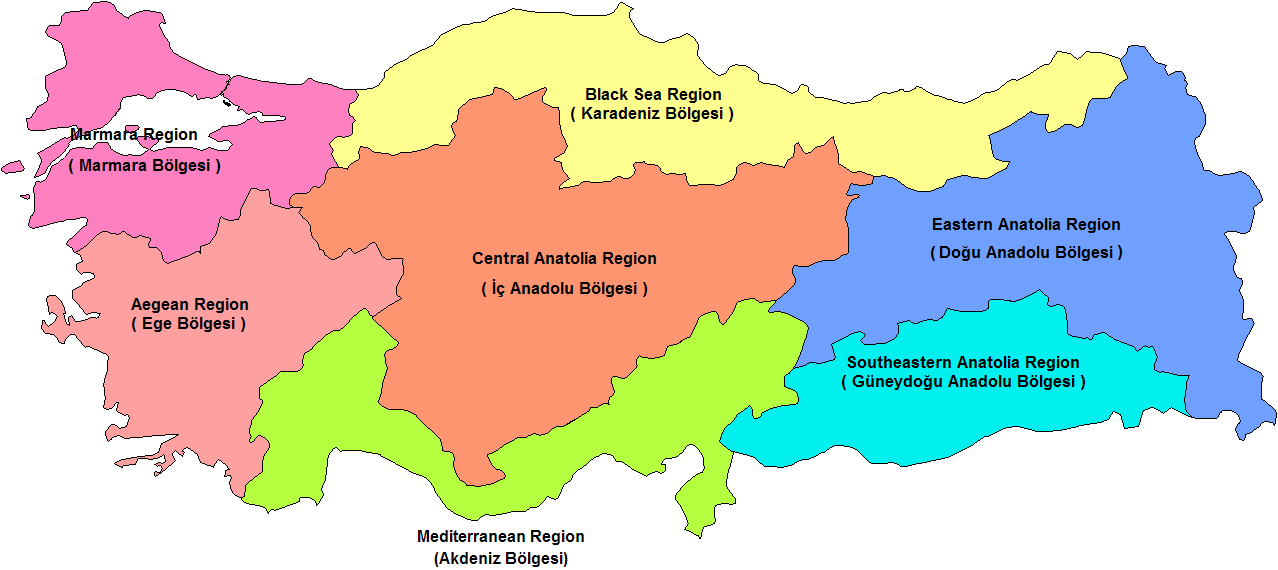Preliminary Definitions:
Before entering into a discussion about Turkey, it becomes important to discuss a few terms that will be used in the following pages:
For the purposes of Turkey, race will be defined as an institutionalized grouping of people based on perceived common ancestry, common language, pigmentation, religion or other perceived differences
Ethnicity will be defined as a self-affiliated grouping of people based on perceived common ancestry, culture, language, or other perceived similarities.
A nation will be defined as a self-afiliated grouping of people based on a shared common history, culture, language or other perceived similarities; in addition, a nation is believes it has the right to rule a designated territory.
Demographics
Though the Turkish government does not officially recognize different races or ethnic groups, data has been collected regarding different populations in Turkey. According to the CIA World Factbook, Turkey is home to over forty minority ethnic groups(CIA). Despite this diversity, Turks (75%) and Kurds (18%) make up the vast majority of the total population (CIA).
The Kurds are identified internationally by their use of the Kurdish language. Though Turkey contains 40% of the international Kurdish population (KONDA), there are also significant Kurdish populations in neighboring Syria, Iran and Iraq. The Kurds recognize parts of Iran, Iraq, Syria and Turkey as belonging to Kurdistan, the unrecognized Kurdish state. In many of these neighboring countries, the Kurds have led separatist movements to achieve a independence in – or attained some level of governing autonomy over – traditionally Kurdish regions. (KHRP)
Race Politics
Since the collapse of the Ottoman empire in 1924, The Turkish government has attempted to create a unified and homogenous nation-state, largely alienating its non-Turk minority ethnic groups (Yanuz). By attempting to catalyze assimilation of minorities, the government has actually divided the country along ethnic lines, with Turks and Kurds at odds.
The Kurds have lived as a peaceful minority ethnic group since Kurdish tribes were initially absorbed by the Ottoman empire. However in the 20th century, Turkey witnessed the rise of a Kurdish National movement in which Kurds began protesting their discrimination and attempted to separate from the Turkish state entirely. This movement was lead by the Kurdish Workers Party, a separatist organization with the primary goal of Kurdish independence from the Turkish state. Though the movement began as a peaceful protest, it has become a violent conflict in the past two decades with bombings, raids and brutality plaguing the Turkish landscape. Turkey is therefore a battlefield of ethnic conflict that requires exploration.
The Republic of Turkey is a paradox in that it exhibits racialized politics without the acknowledgement of races. It is therefore a very interesting country for the study of race, or in this case ethnic, politics.


